Last month, we asked our panel about their expectations and preferences about the Conservative leadership. We found then that a majority of Conservative Party members (56 per cent) thought that Kemi Badenoch should lead the party into the next election.
This month we asked again, and got a very similar result. Once again, a majority (57 per cent) think she should fight Labour in 2029. The only shift was a small one away from ‘definitely’ (-1 per cent) and towards ‘probably’ (+2 per cent), but that is mirrored by the decline in the those saying she should ‘definitely not’ fight the election. So, an all right vote so far.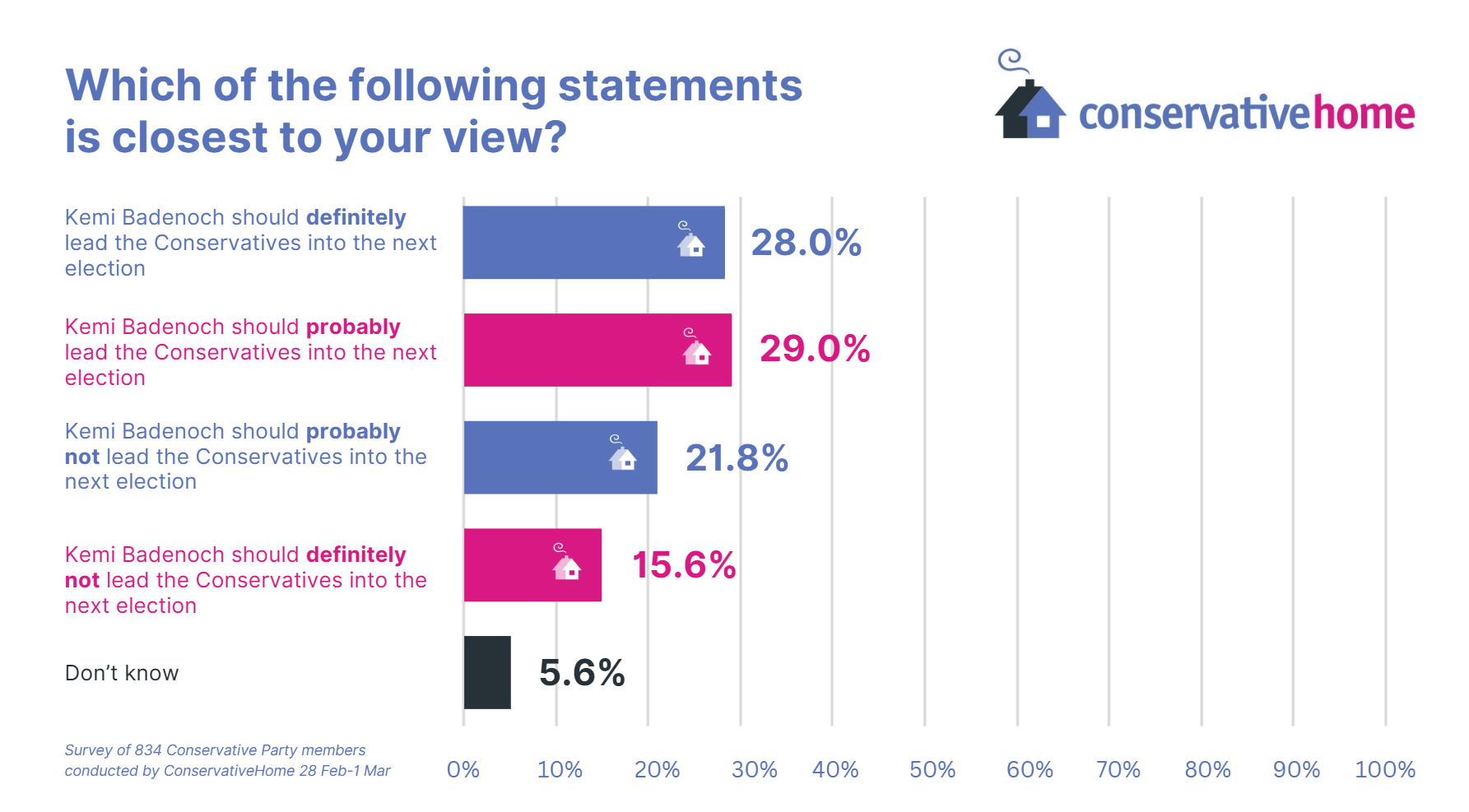
But whether or not we should change leader is a different proposition to one’s abstract preference. Even if a member were feeling buyers’ remorse about their vote last year – which we suggested could be one factor which has pushed Robert Jenrick to the top of the Shadow Cabinet League Table – they might well think it would be unfair, or at least unwise, to attempt to change horses now.
So this month, we decided to ask our panel how they’d vote were the final round of the leadership contest being held today:
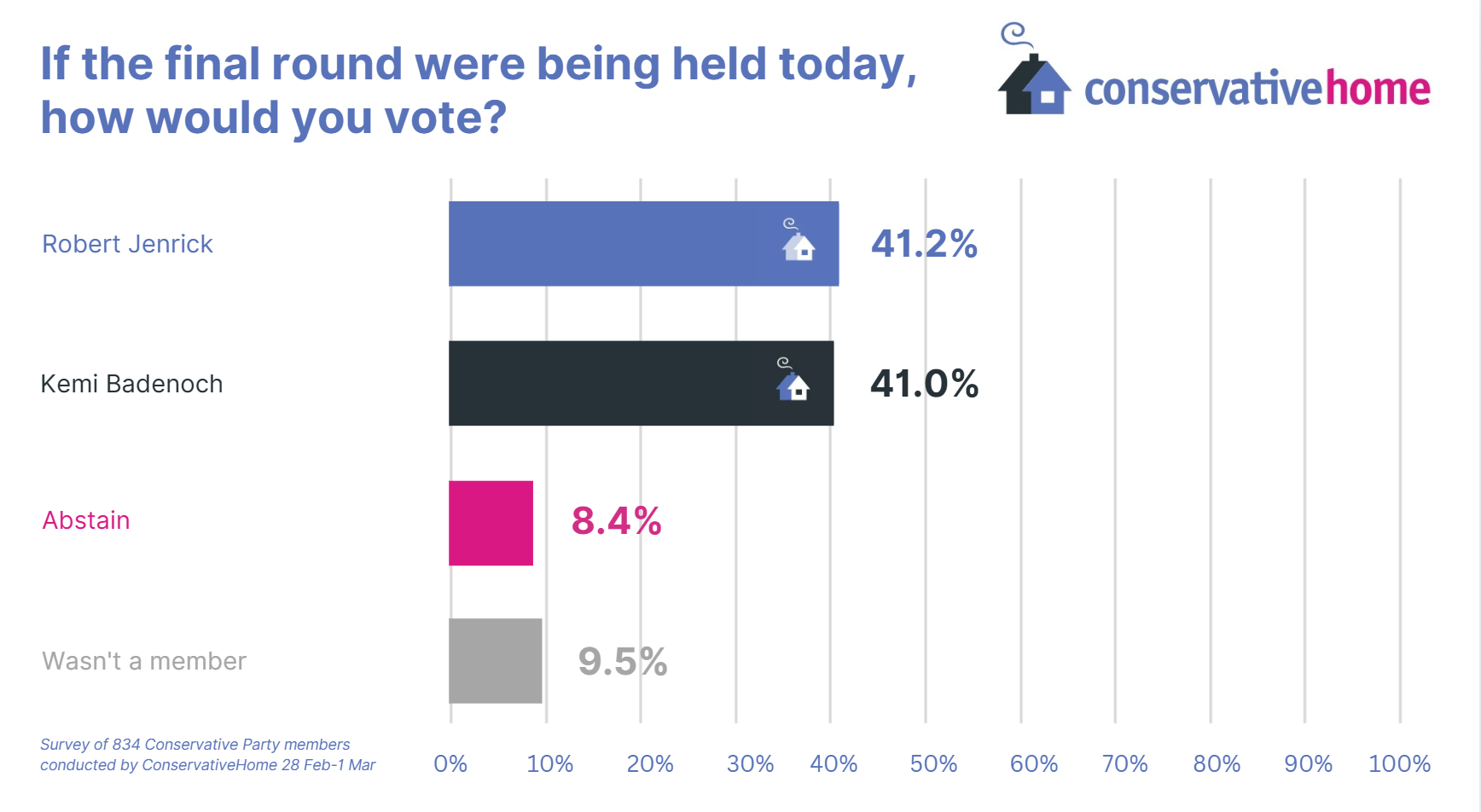
It’s Jenrick – just. The margin was as narrow as it could possibly be, with just a single vote separating the two candidates. Interestingly, the gap is much smaller than the gulf that separates Jenrick and Badenoch in the league table.
Yet if this swing were replicated amongst the overall membership, it seems likely that Jenrick would come out ahead. To get an idea of the swing, we also asked our panellists how they actually voted in last year’s contest; they reported breaking for Badenoch by a 30-point margin (see graph below), considerably more than the 13-point lead she actually secured in the second round.
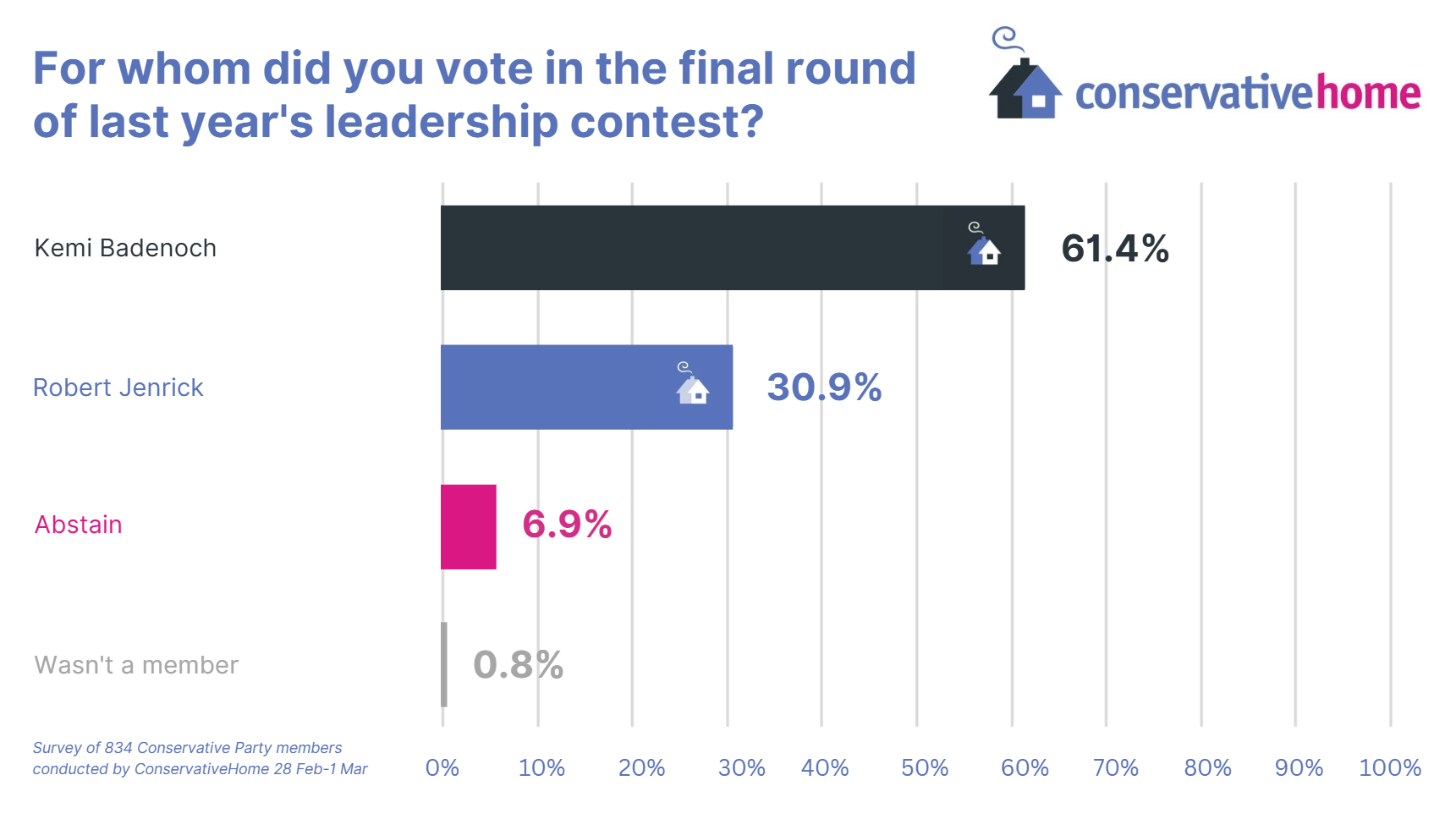
Provided everybody is accurately reporting (and recollecting) how they voted in October, that means Jenrick has gained ten points whilst Badenoch has lost 20 – a fairly dramatic shift in just a few months.
Our final two charts show how the vote has moved. Jenrick has held on to over nine in ten of his voters from last year. For Badenoch, on the other hand, that number is only just over six in ten, with almost a fifth of her supporters switching to Jenrick. More of her voters have also switched either to abstaining (five per cent) or Don’t Know (12.5 per cent).
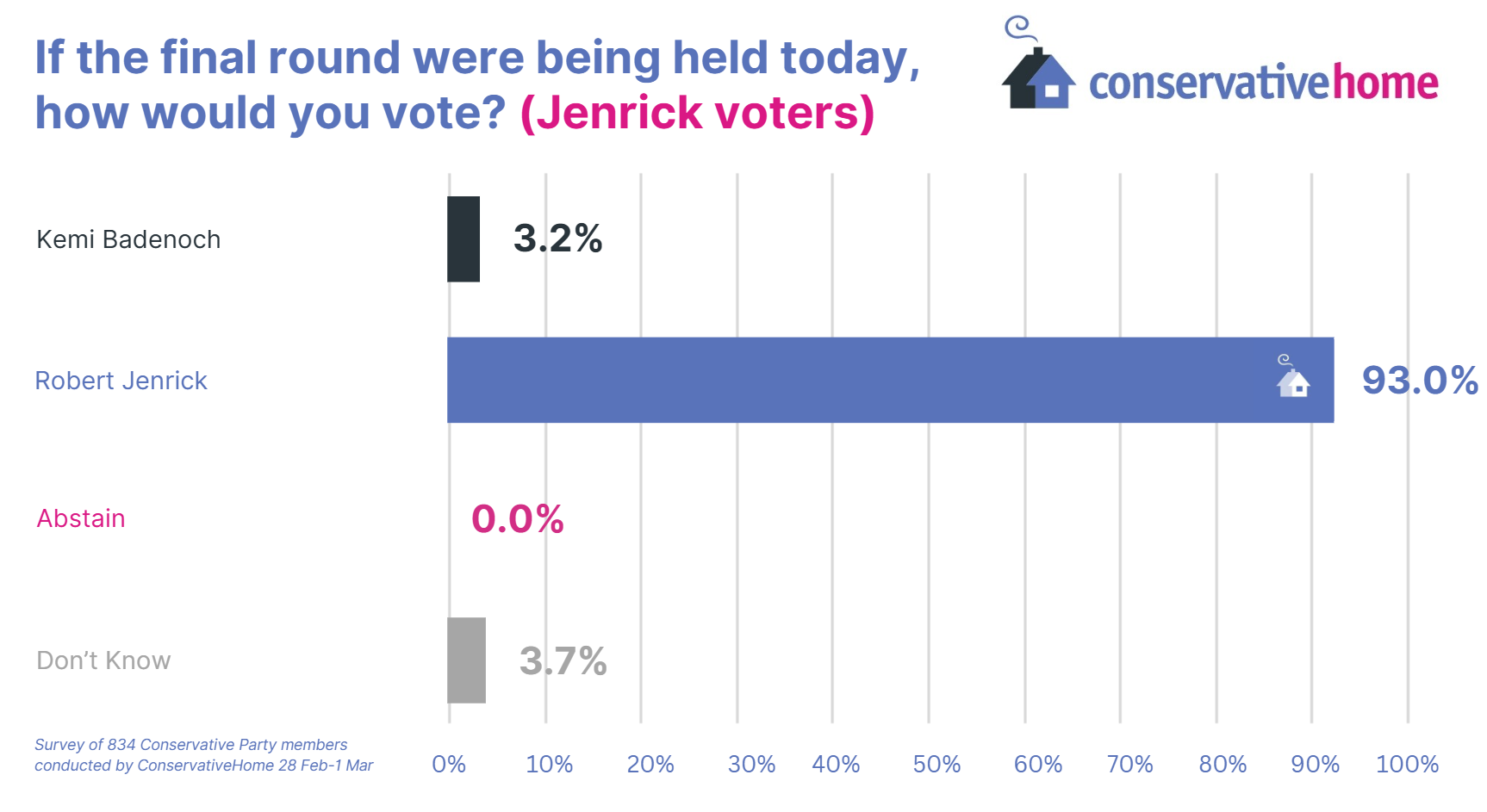
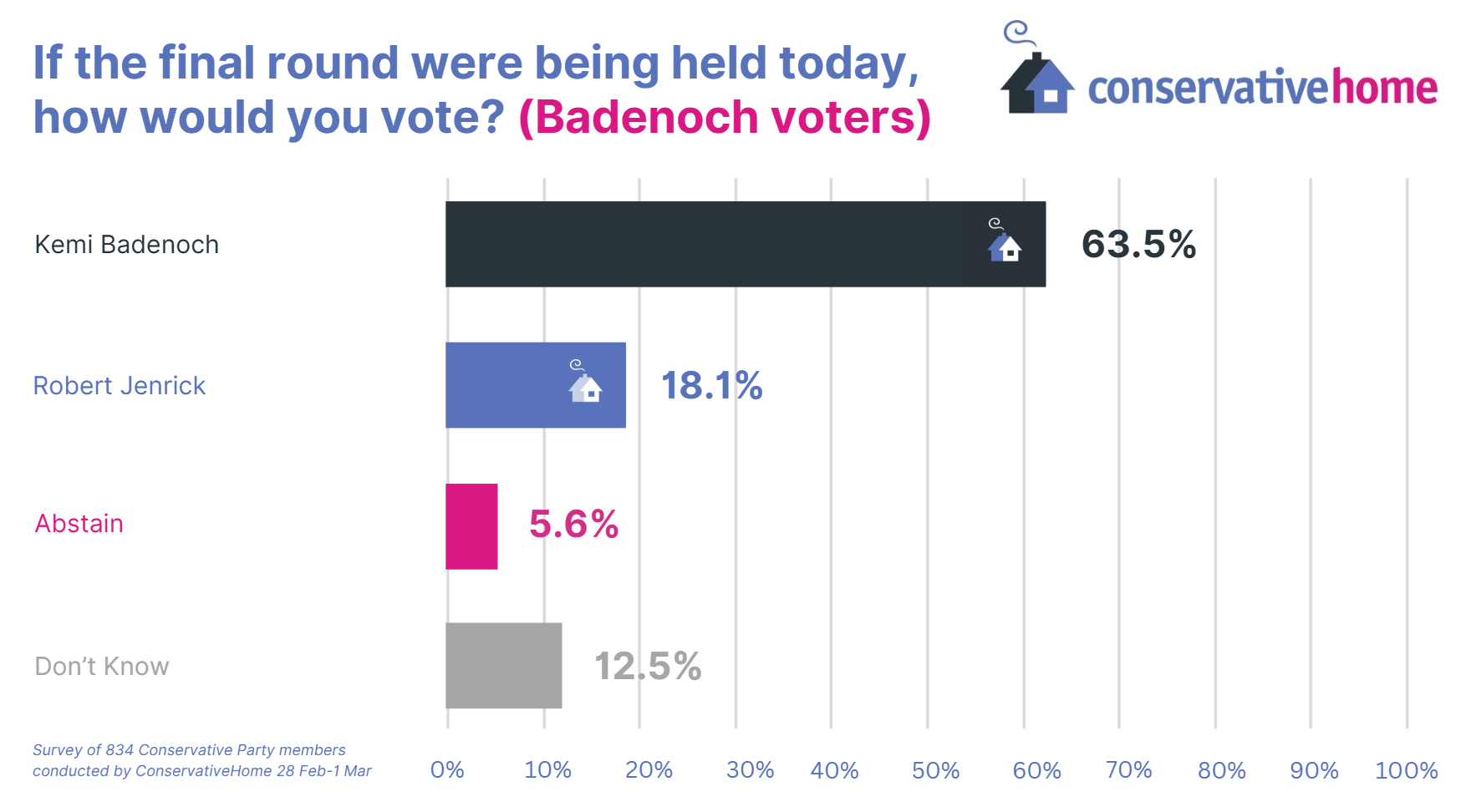
These figures don’t portend any immediate crisis. There is no mechanism by which membership discontent could directly trigger a leadership contest even if they wanted one, and the answers to our first question say they don’t. But they are a clear message to the leadership that it needs to up its game – and will certainly weigh in the calculations of any Conservative MPs who start getting restive.





![Trump's Admin Guts Another ‘Rogue Government Agency with Zero Accountability’ [WATCH]](https://www.right2024.com/wp-content/uploads/2025/03/Trumps-Admin-Guts-Another-‘Rogue-Government-Agency-with-Zero-Accountability-350x250.jpg)



![‘We All Owe Him (Elon) a Huge Debt of Gratitude’ [WATCH]](https://www.right2024.com/wp-content/uploads/2025/03/‘We-All-Owe-Him-Elon-a-Huge-Debt-of-Gratitude-350x250.jpg)

![NCAA Champ Salutes President Trump After ‘BIGGEST UPSET IN COLLEGE WRESTLING HISTORY’ [WATCH]](https://www.right2024.com/wp-content/uploads/2025/03/NCAA-Champ-Salutes-President-Trump-After-‘BIGGEST-UPSET-IN-COLLEGE-350x250.jpg)





